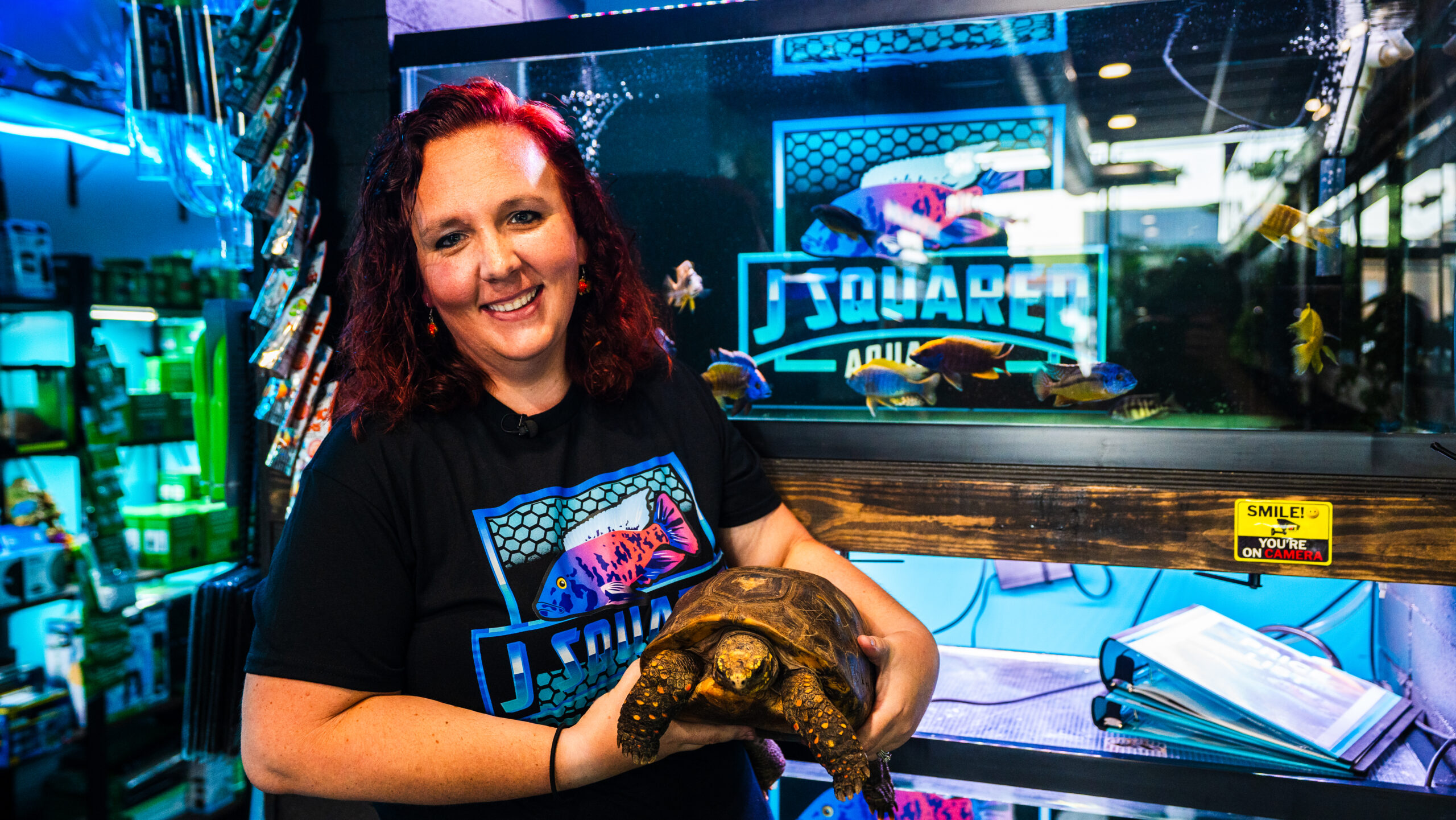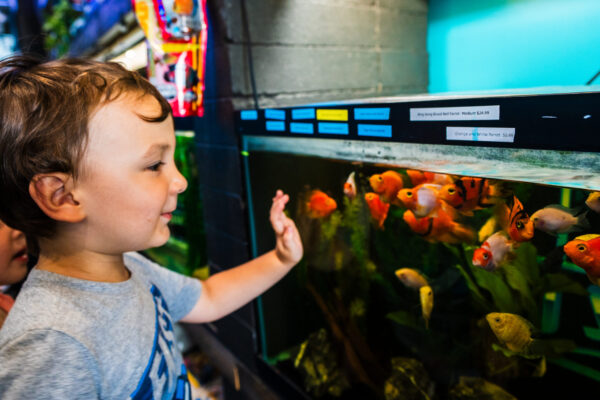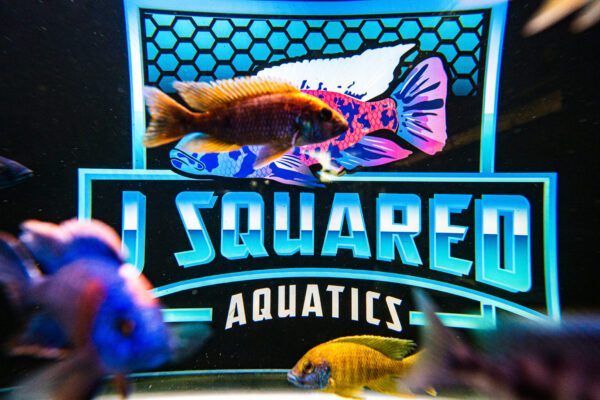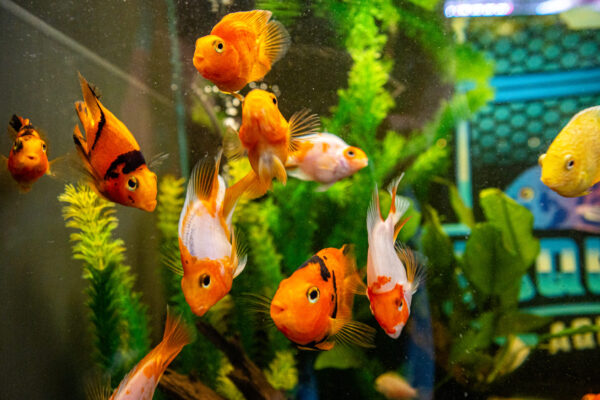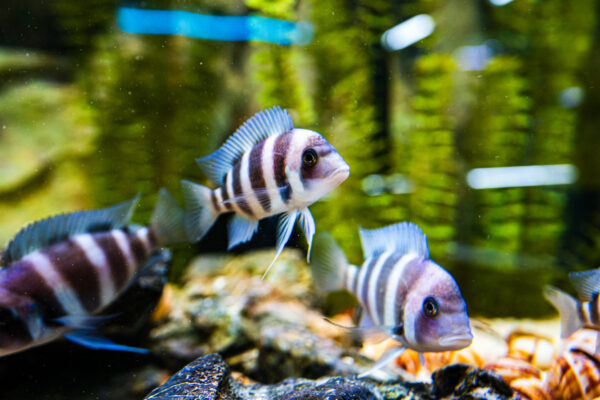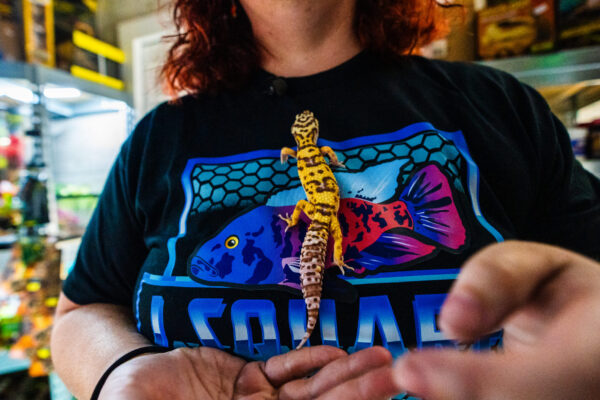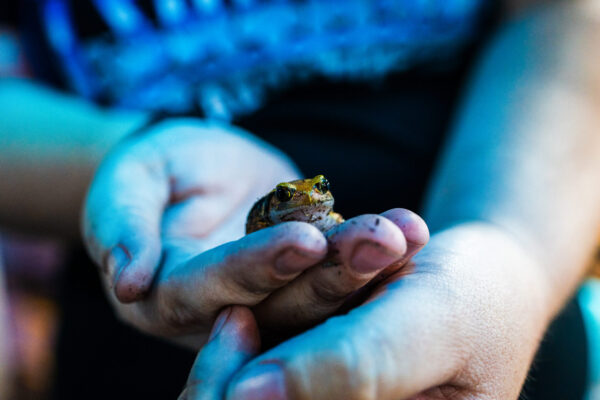The increased costs associated with tariffs impact all of us, affecting millions of people. Retailers of all kinds across Illinois import many of the goods they sell. Tariffs have created more uncertainty for retailers than many have ever experienced. The Illinois Retail Merchants Association has found that while retailers are trying to hold-off on price increases, it’s impossible to absorb the extra expenses for numerous business owners who function on very small margins – which forces consumers to pay more.
Retailers like Jessica and Jamie Allhands, co-owners of J Squared Aquatics, enrich our economy and strengthen our communities, even during the uncertainty of increased tariff expenses. To better understand how J Squared Aquatics is dealing with the escalation of existing tariffs, we sat down for a conversation with Jessica and Jamie.
Remember the relaxing feeling of watching colorful fish swimming around an aquarium with a hypnotic rhythm? Aquarium owners in central Illinois have come to depend on J Squared Aquatics, a boutique aquarium and reptile shop, to keep their aquariums bright and full of life. Jessica Allhands and her husband, Jamie, own this brick-and-mortar on the main square in downtown Clinton. J Squared Aquatics is also well known for its quarantine process for all fish and reptiles before they leave the shop for new homes.
“We want to set our customers up for success and make sure that they stay in the hobby for years to come,” said Jessica.
Like many retailers in the state, Jessica finds herself navigating the choppy waters of the ongoing international trade war, specifically the impact of new tariffs on her business. According to Jessica, new tariff costs can impact everything from tank decorations to the very fish she sells. As a hobby-rooted business dependent on discretionary income, price hikes linked to the new tariffs have Jessica concerned that aquarium enthusiasts might pull their toes out of the proverbial water, putting a real strain on her business.
IRMA: What do tariffs have to do with tropical fish?
JESSICA: Most fish that are in the tropical fish trade are imported. So, if those tariffs increase to the point where it’s not logical to bring in new fish, then we won’t have them anymore. So, how do we change that? We breed tropical fish in the United States. Well, you can’t breed them here in the United States if you don’t have people that are interested in the hobby. So, it’s also one of those hobbies that can sort of pay back as well, and that is why I buy fish from local breeders.
IRMA: You’re not importing as many things as other places?
JESSICA: So, we still do rely heavily right now on importing, but we have probably about 20 different species that are locally bred in addition to the fish that we breed at our home ourselves. So yes, it does set us apart in the fact that we want to have that locally sourced fish.
IRMA: Where are the fish coming from that you do import?
JESSICA: Most tropical fish are imported from overseas. So, Thailand, China, any of those countries. Those are big ones that we import from. Again, China is one of those ones that we’re really keeping a close eye on to see what they do. There’s even talk of moving fish farms from those places to other tropical countries that have less of a tariff.
IRMA: So, how are new tariffs impacting your overall business?
JESSICA: Tariffs are impacting most of the dry goods, like our filters, air pumps, and decorations for our aquariums. Those are mainly sourced from China. So, that’s the big one that everybody’s talking about related to tariffs right now. We are lucky in the fact that a lot of the wholesalers have ordered extra stock themselves and got that stock on the water (shipped to the United States) prior to [higher] tariffs going into effect.
IRMA: So, you are in a good place right now?
JESSICA: For the foreseeable next couple of months, we’re in the safe zone. However, if this carries on, that can make it almost cost prohibitive to be running an aquarium and purchasing new items, unless we start to see some stuff transferring to factories here in the United States.
IRMA: What are your concerns when you’re in the middle of America, in the heartland, but you’re impacted by this trade war?
JESSICA: So, a fish typically has three or four stops before it arrives here. At each of those stops, somebody has to get their dime off of moving the fish. So, if you start a buck higher before it is even put on a ship across the water to us, is that going to make it? Am I not going to be able to afford fish to stock my aquariums? That’s why we try to locally source fish as much as possible. So yes, that is a real concern for us. If prices keep going up because of tariffs, you’re going to see the availability, quantity and
quality of fish that we’ve been accustomed to having for only so long.
IRMA: Might some people say, ‘This is going to cost too much. I’m going to get out of this?’
JESSICA: Yes. We are a discretionary business if you think about it. I mean, we’re a hobby. Those tariffs are already impacting other things. We’re seeing prices increase at the grocery store and at the gas pump. If those things continue to rise, even property taxes, hobbies are probably one of the first things to go. So, we have to be able to mitigate that. If we can’t, then this business will cease to exist.
IRMA: What do you think about all this, emotionally?
JESSICA: Emotionally, I’m on a little bit of a roller coaster. I understand the reasoning behind things. I wish that we knew for sure. A lot of times we’re running in the dark a little bit right now. We don’t know exactly what to expect. Stuff happens, and then it gets paused. So, emotionally, I’m just waiting for all the chips to fall, to see where and how we play our hand. I do think that we are in an excellent position here at J Squared. I think we set ourselves up well to make sure that we can weather these storms for limited periods of time. You get into this hobby in the stream, and then you realize five years down the road, it’s not sustainable. So emotionally, that’s something I sort of have to prepare myself for.
IRMA: Has it crossed your mind that here you are in the middle of the downtown square in Clinton in Central Illinois, and you’re caught up in this trade war?
JESSICA: A lot of times you see this stuff about tariffs on TV, and you don’t really realize there’s the downstream impact of that. I’m a retail store, and I’m seeing that impact directly.
IRMA: Are you already seeing invoices that are higher for things, or are you just receiving more warnings about price hikes?
JESSICA: More warnings right now and more just trying to get that stock built up so that they (vendors) can weather any changes. So, they’re trying to stock their warehouses. Like I said, a lot of them try to get stuff on the water (shipped to the United States) before any new tariffs hit. So, they’re bringing cargo loads back to their warehouses to make sure that they’re able to supply us with what we need. I get weekly updates from wholesalers on what they’re trying to do to mitigate things and to make it less of a burden on brick-and-mortar stores like us.
IRMA: Give me an example of an item you sell that comes from China. What does it costs now and what might it costs because of a higher tariff?
JESSICA: Here is a really good example. There’re some motorized gravel vacuums that help keep aquariums clean. Not something that’s super on top of the list for people,but right now they average around 40 bucks. After a new tariff, they’re going to be around like $145. Nobody’s going to spend $145 on a gravel vacuum for an aquarium. In addition, most of our dry goods, like canister filters, and air pumps that supply the oxygen for our aquarium fish. Those are all going to be seeing exponentially higher prices. That’s because it all comes from overseas, most of it being from China.
To learn more about J Squared Aquatics by visiting www.jsquaredaquatics.com.
